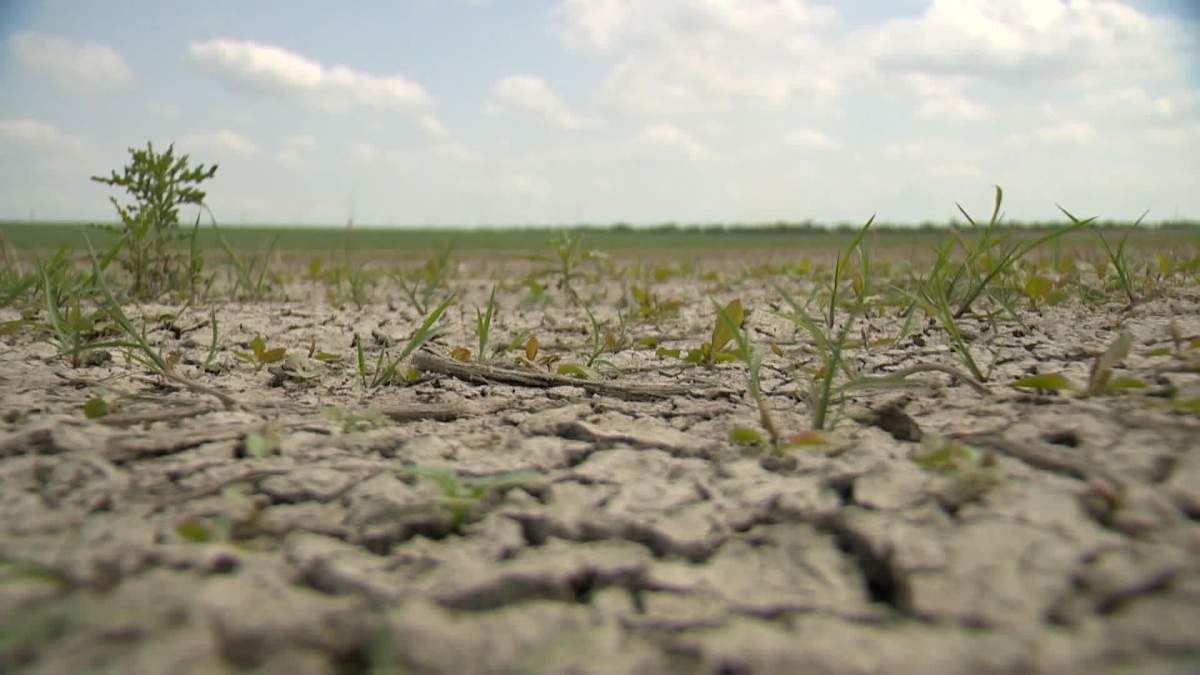Some producers in Saskatchewan have started to harvest as the heat has accelerated the ripening and maturation of the 2021 crop.

However, Saskatchewan Agriculture said estimated yields are expected to be well below average.
Sask Ag said prolonged drought conditions in the province have rapidly deteriorated crop conditions and the majority of crops are rated poor to fair.
Producers are also determining whether cutting and baling crops is a better option this year, Sask Ag said in Thursday’s crop report.
The lack of rain and above average temperatures continue to have a negative impact on topsoil moisture conditions, with more than 50 per cent of the land very short on moisture.
Cropland topsoil moisture is rated 58 per cent very short, 38 per cent short and only four per cent adequate.
Hay and pasture land topsoil moisture are rated 71 per cent very short, 27 per cent short and two per cent adequate.
Rain was reported in some regions. Areas around Indian Head and Neilburg received 55 millimetres in the past week, while the Lumsden area received 33 millimetres, the Langenburg area 30 millimetres and the Saltcoats area 24 millimetres.
- Canadian immigration officers investigating hundreds identified by extortion task force
- Ottawa expects Ukrainian emergency visa holders to return after war ends
- China drops visa requirement for Canadian tourists, business visitors
- As new EV rebate program starts, car dealers still seek past reimbursements
Sask Ag said any rain received now will not increase yields, but will have a positive effect on next year.

Get breaking National news
Haying operations have mainly wrapped up around the province, with 15 per cent of the hay crop cut and 75 per cent baled or put into silage.
Yields are reported to be below normal and quality is rated 40 per cent good, 34 per cent fair and 22 per cent poor and four per cent excellent.
A second hay cut is extremely unlikely, Sask Ag reported.
Relief measures
The Saskatchewan Crop Insurance Corporation said it is doubling the low yield appraisal threshold values for its customers who salvage their cereal or pulse crops as feed, without negatively impacting future individual coverage.
SCIC said customers should contact their local office first to discuss options before they graze, bale or silage any damaged crops.
The Saskatchewan government said it is providing relief to livestock producers by temporarily increasing the maximum funding from the Farm and Ranch Water Infrastructure program from $50,000 to $150,000.
The program is for dugouts, wells and pipelines for agriculture use, with the first $50,000 based on a 50-50 cost-share and the remaining $100,000 on a 70-30 government-producer cost-share.
More information on the program is available by contacting the Agriculture Knowledge Centre at 1-866-457-2377.
Farmers stress line
Sask Ag said the Farmers Stress Line is available 24-hours a day for any needed support at 1-800-677-4442.
The service is run by Mobile Crisis Services Regina and all calls are confidential.









Comments
Want to discuss? Please read our Commenting Policy first.